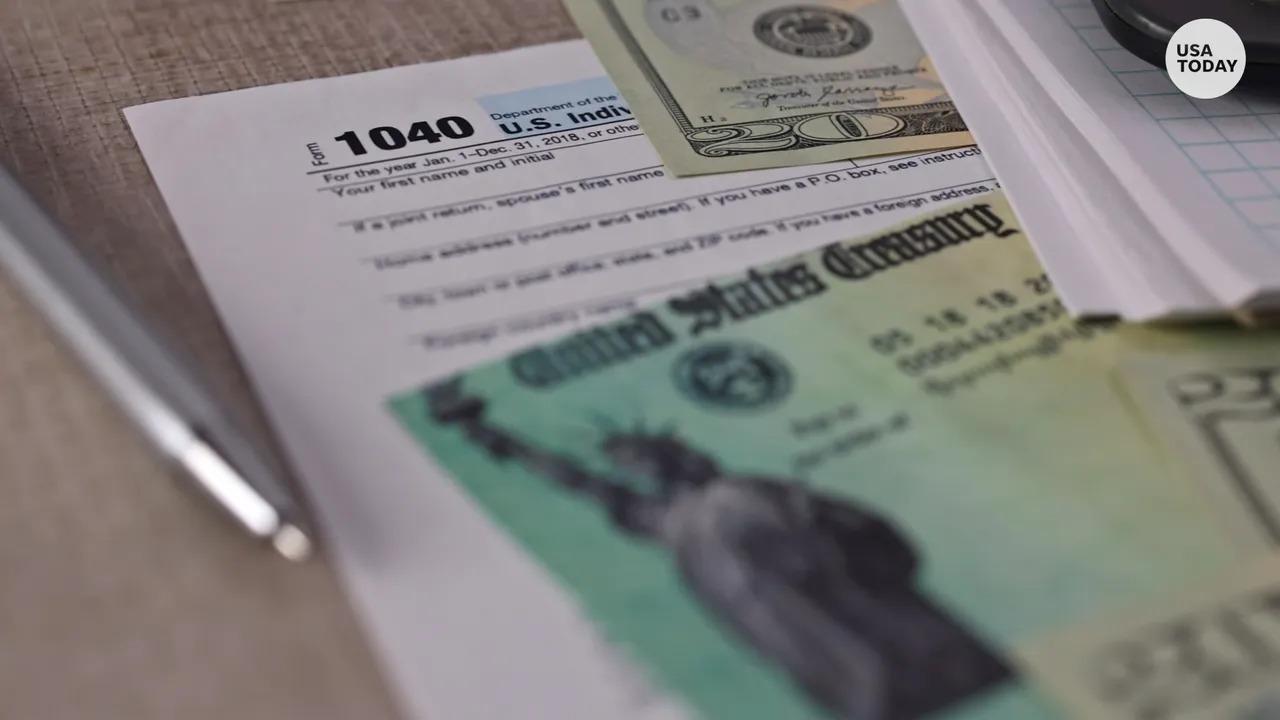

Finance
How Often Does The SBA Audit Loans?
Published: February 17, 2024
Find out how frequently the SBA audits loans and ensures compliance with finance regulations. Learn about the audit process and its impact on loan recipients.
(Many of the links in this article redirect to a specific reviewed product. Your purchase of these products through affiliate links helps to generate commission for LiveWell, at no extra cost. Learn more)
Table of Contents
Introduction
The Small Business Administration (SBA) plays a vital role in supporting the growth and success of small businesses across the United States. One of the key ways it fulfills this role is by providing access to crucial funding through its loan programs. However, to ensure the integrity and accountability of these programs, the SBA conducts audits of the loans it guarantees. These audits serve to verify compliance with the agency's regulations and guidelines, as well as to identify any irregularities or potential issues that may require further investigation.
Understanding the frequency and process of SBA loan audits is essential for both lenders and borrowers. It provides insight into the level of oversight applied to SBA-guaranteed loans and the factors that may trigger an audit. Additionally, awareness of the potential consequences of an SBA loan audit can help stakeholders navigate the lending process with greater confidence and compliance.
In this article, we will delve into the intricacies of SBA loan audits, exploring the frequency of these audits, the factors that influence their occurrence, and the potential ramifications for lenders and borrowers. By gaining a comprehensive understanding of SBA loan audits, readers can navigate the lending landscape with greater clarity and insight.
The Role of SBA in Loan Auditing
The Small Business Administration (SBA) serves as a guarantor for a wide array of loans extended to small businesses by approved lenders. This crucial role enables entrepreneurs and small business owners to access financing that might otherwise be unattainable, fostering business growth, job creation, and economic development. As part of its oversight responsibilities, the SBA conducts loan audits to ensure that its loan programs are administered in accordance with its regulations and to maintain the integrity of the lending process.
Through its loan auditing processes, the SBA aims to verify that lenders comply with the agency’s guidelines when originating, servicing, and liquidating loans. This includes assessing whether lenders have accurately determined borrowers’ eligibility, adhered to the SBA’s underwriting standards, and followed the appropriate procedures for loan disbursement and repayment. Additionally, loan audits enable the SBA to identify any instances of fraud, misrepresentation, or non-compliance with its regulations, thereby safeguarding the interests of both borrowers and the agency itself.
By assuming the role of a vigilant overseer, the SBA helps maintain the integrity and credibility of its loan programs, instilling confidence in both lenders and borrowers. Furthermore, the agency’s commitment to thorough and consistent loan auditing contributes to the overall stability and sustainability of the small business lending ecosystem, fostering an environment where entrepreneurs can access the capital they need to pursue their ventures with confidence.
Frequency of SBA Loan Audits
The frequency of Small Business Administration (SBA) loan audits varies based on several factors, including the type of loan, the lender’s track record, and the overall risk profile of the loans in question. Generally, the SBA conducts audits on a regular basis to ensure compliance with its regulations and to maintain the integrity of its loan programs.
For SBA 7(a) loans, which are among the most common types of SBA-guaranteed loans, the agency typically conducts audits as part of its ongoing oversight efforts. These audits may occur annually or semi-annually, depending on the volume and performance of the loans originated by a particular lender. Additionally, lenders with a history of non-compliance or higher levels of risk in their loan portfolios may be subject to more frequent and rigorous audits to mitigate potential issues and uphold the SBA’s standards.
Similarly, SBA 504 loans, which are geared toward financing fixed assets such as real estate and equipment, are subject to regular audits to ensure adherence to the SBA’s guidelines and regulations. The frequency of these audits may align with the operational and risk profiles of the Certified Development Companies (CDCs) that administer the 504 loan program, with a focus on maintaining transparency and accountability in the lending process.
It’s important to note that the SBA may also conduct targeted or ad-hoc audits in response to specific concerns or emerging trends within the small business lending landscape. These audits serve to address potential areas of risk or non-compliance, providing the SBA with a mechanism to proactively safeguard the integrity of its loan programs and protect the interests of borrowers and taxpayers.
Overall, the frequency of SBA loan audits reflects the agency’s commitment to diligent oversight and regulatory compliance, aiming to uphold the integrity and effectiveness of its lending initiatives while promoting a stable and transparent small business lending environment.
Factors That Influence SBA Loan Audits
Several key factors influence the likelihood and intensity of Small Business Administration (SBA) loan audits, shaping the agency’s approach to oversight and compliance within the small business lending landscape. Understanding these factors can provide valuable insights for lenders and borrowers, shedding light on the dynamics that may prompt SBA audit activities.
- Lender Performance and Compliance History: The track record of a lender in originating, servicing, and liquidating SBA-guaranteed loans significantly influences the frequency and depth of SBA audits. Lenders with consistently strong compliance records and low levels of risk in their loan portfolios may face less frequent and less intrusive audits, reflecting the SBA’s confidence in their adherence to the agency’s guidelines.
- Risk Profile of Loan Portfolios: The overall risk profile of a lender’s SBA loan portfolio plays a pivotal role in determining the likelihood of audits. Higher-risk loans, whether due to industry-specific factors, economic conditions, or other variables, may draw increased scrutiny from the SBA, leading to more frequent and thorough audits to mitigate potential issues and maintain regulatory compliance.
- Emerging Compliance Concerns: Shifts in regulatory requirements, industry trends, or economic conditions can prompt the SBA to focus its audit efforts on specific areas of concern. For example, changes in lending practices, heightened fraud risks, or evolving market dynamics may lead the SBA to conduct targeted audits aimed at addressing emerging compliance challenges within the small business lending sector.
- Complaints and Allegations: Complaints or allegations regarding potential non-compliance, fraud, or misconduct related to SBA-guaranteed loans can trigger audits, prompting the agency to investigate and address reported issues. The SBA takes such reports seriously, utilizing audits as a means to validate compliance and integrity while addressing any substantiated concerns.
By considering these influential factors, lenders and borrowers can gain a clearer understanding of the dynamics that underpin SBA loan audits, enabling them to proactively align their practices with the agency’s guidelines and expectations. Furthermore, awareness of these factors can foster a culture of transparency, accountability, and regulatory adherence within the small business lending ecosystem, ultimately contributing to the sustainability and effectiveness of SBA loan programs.
Consequences of SBA Loan Audits
Small Business Administration (SBA) loan audits can have significant implications for both lenders and borrowers, shaping the outcomes of the audit process and influencing the future trajectory of the parties involved. Understanding the potential consequences of SBA loan audits is essential for navigating the lending landscape with awareness and preparedness.
- Compliance Findings and Remedial Actions: Following an SBA loan audit, the agency may issue findings related to compliance, risk management, or procedural adherence. Depending on the nature and severity of the findings, the SBA may require lenders to implement remedial actions to address identified deficiencies, enhance internal controls, or mitigate risks within their loan portfolios. These actions aim to bolster regulatory compliance and operational integrity, fostering a more robust and accountable lending environment.
- Repercussions for Non-Compliance: Instances of non-compliance uncovered during SBA loan audits can lead to various repercussions for lenders, ranging from corrective measures and heightened oversight to potential sanctions or penalties. The severity of these repercussions often correlates with the nature and scope of the non-compliance, underscoring the importance of maintaining rigorous adherence to the SBA’s guidelines and regulations.
- Impact on Borrowers: SBA loan audits can also impact borrowers, particularly in cases where audit findings prompt changes in lending practices, eligibility criteria, or loan servicing protocols. Borrowers may experience adjustments in the availability of SBA-guaranteed financing, alterations in application requirements, or shifts in the terms and conditions of loan products as lenders respond to audit-related mandates and recommendations.
- Enhanced Transparency and Accountability: While the consequences of SBA loan audits can pose challenges for lenders and borrowers, they also contribute to the overarching goals of transparency and accountability within the small business lending ecosystem. By addressing compliance deficiencies, mitigating risks, and fostering a culture of regulatory adherence, SBA loan audits support the long-term sustainability and effectiveness of the agency’s loan programs, benefiting all stakeholders.
Ultimately, the consequences of SBA loan audits underscore the critical importance of maintaining robust compliance measures, prudent risk management practices, and a commitment to upholding the integrity of SBA-guaranteed lending. By proactively addressing audit findings, embracing remedial actions, and aligning with the SBA’s regulatory expectations, lenders and borrowers can contribute to a resilient and trustworthy small business lending environment, fostering opportunities for sustainable growth and success.
Conclusion
Small Business Administration (SBA) loan audits represent a cornerstone of the agency’s commitment to ensuring the integrity, transparency, and compliance of its loan programs. By conducting regular audits and addressing emerging compliance challenges, the SBA upholds the standards of small business lending, fostering an environment where entrepreneurs can access vital financing with confidence and trust.
For lenders and borrowers, understanding the intricacies of SBA loan audits is instrumental in navigating the lending landscape with clarity and preparedness. By recognizing the factors that influence audit frequency, embracing robust compliance measures, and proactively addressing audit findings, stakeholders can contribute to a resilient and accountable small business lending ecosystem.
Moreover, the consequences of SBA loan audits underscore the significance of maintaining regulatory adherence, prudent risk management, and operational transparency. While audits may pose challenges, they also present opportunities for lenders and borrowers to enhance their practices, fortify compliance measures, and contribute to the sustainability and effectiveness of SBA-guaranteed lending initiatives.
By fostering a culture of accountability, integrity, and regulatory compliance, SBA loan audits serve as a mechanism for promoting the long-term success and stability of small businesses across the United States. As the SBA continues to uphold its oversight responsibilities and refine its audit processes, stakeholders can engage in the lending process with confidence, knowing that the agency’s commitment to diligence and integrity underpins the small business lending ecosystem.
In conclusion, SBA loan audits stand as a testament to the agency’s dedication to fostering a robust, transparent, and supportive environment for small business financing. By embracing the insights and awareness garnered from understanding SBA loan audits, lenders and borrowers can contribute to a lending landscape characterized by accountability, opportunity, and sustainable growth.














